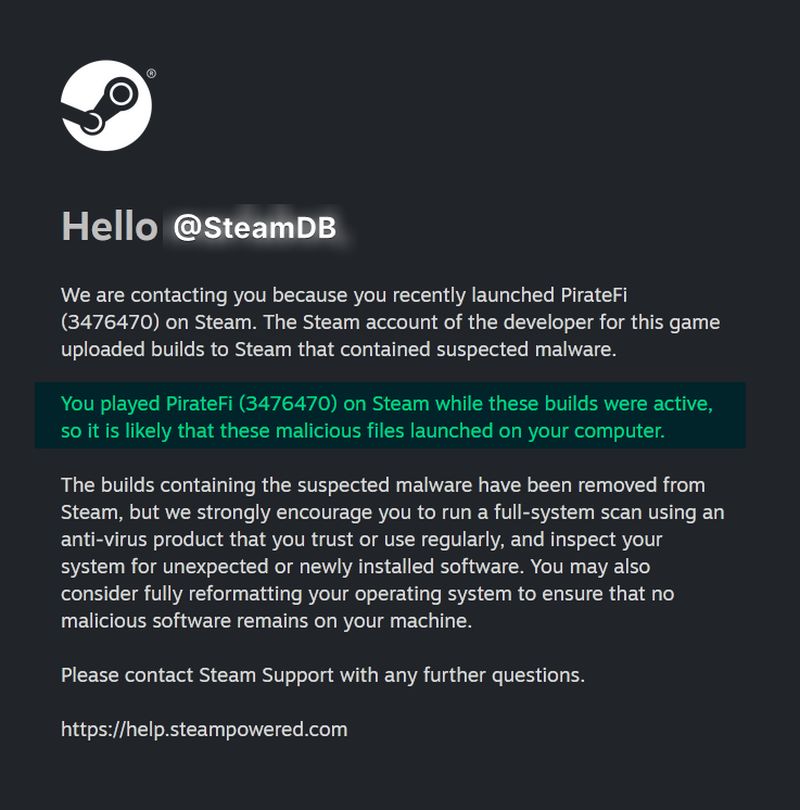On February 6, hackers managed to upload a pirate-themed survival game called PirateFi onto Steam under the developer name Seaworth Interactive. The game was designed to contain malware that could steal users’ browser cookies and was available for at least a week before Valve removed it from its storefront and alerted users about potential risks to their PCs.
Hackers upload malware-filled game PirateFi to Steam
The Steam page for PirateFi has been taken down; however, some screenshots still circulate online. According to SteamDB, the game was downloaded by an estimated 800 to 1,500 users before its delisting. Reports indicated that the promotional images and videos for PirateFi were lifted from another existing survival game, Easy Survival RPG.
PCMag stated that some users’ anti-virus software flagged PirateFi before execution, identifying it as “Trojan.Win32.Lazzzy.gen,” a type of malware aimed at stealing browser cookies. The compromised data could enable hackers to access users’ various online accounts.
Claim: DeepSeek AI can be hacked to generate malware
Additionally, it was reported that individuals representing PirateFi were offering job postings for an in-game chat moderator position, advertised at $17, through Telegram. One reader suggested they were interacting with a chatbot, based on the quick responses received, encouraging them to download the malware-filled game.

Following the game’s removal, Valve sent notifications to users who played PirateFi, indicating that the “Steam account of the developer for this game uploaded builds to Steam that contained suspected malware.” Valve advised users who downloaded PirateFi to run a complete system scan using anti-virus software and to review for suspicious or recently installed software on their PCs. In some cases, they also recommended considering a complete Windows reinstallation to eliminate any lingering potential malware.
This incident marks the only release by the developer Seaworth Interactive, which lacked an official website or social media presence, a factor that could have raised red flags for potential users.
Valve has not responded to inquiries for comment, leaving questions about how a malware-infested game was able to be released on Steam and what measures the company plans to implement to prevent similar occurrences in the future.
Featured image credit: Valve





